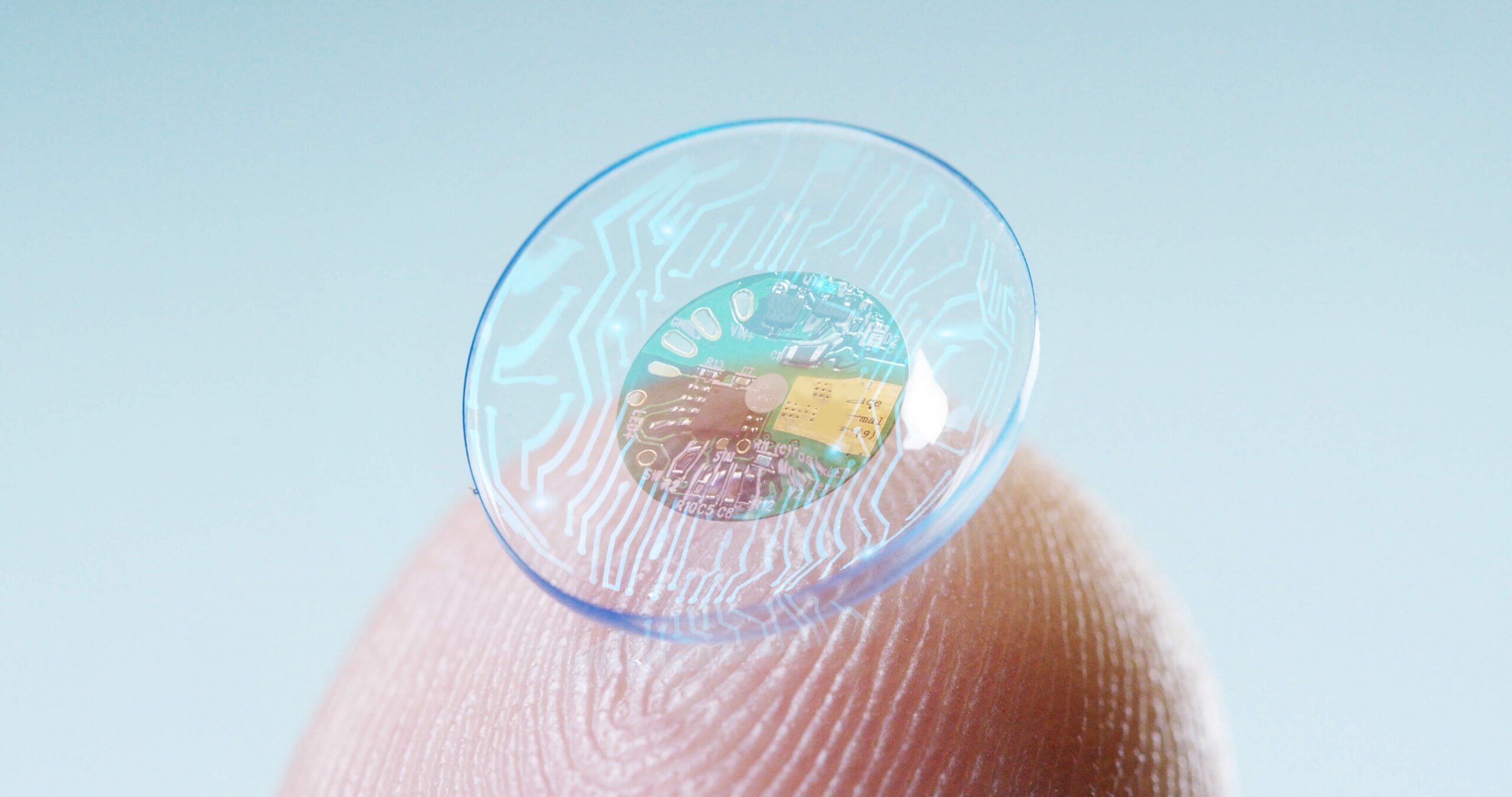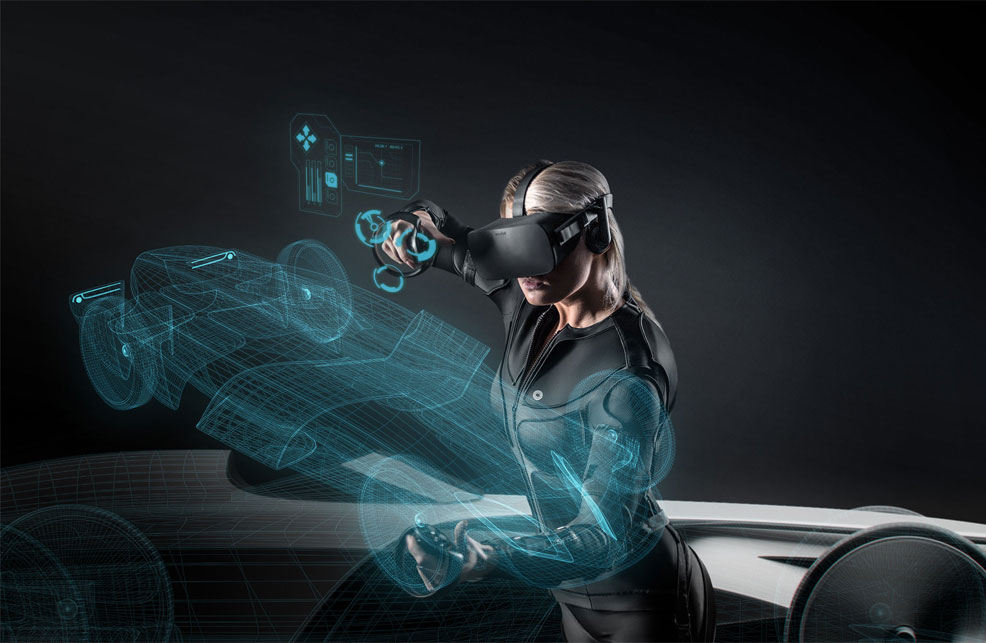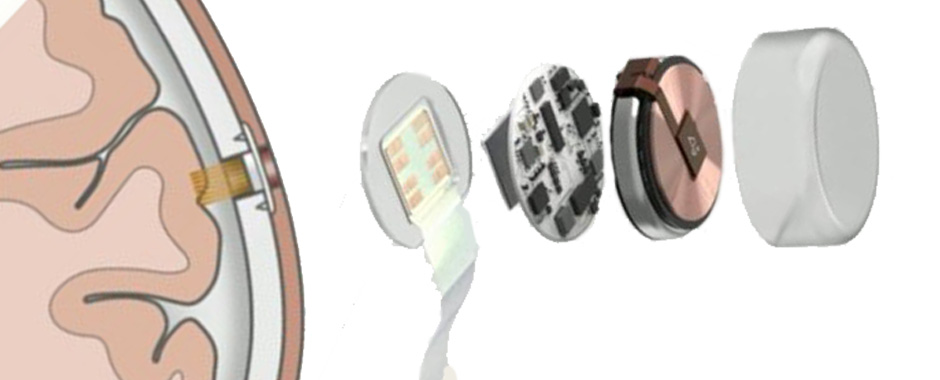Eduvation Blog
Tuesday, September 1, 2020 | Category: Eduvation Insider
Extending Extended Reality… Right into your Skull?

Good morning!
Across Canada, most of the action this week takes place in K-12 classrooms as millions of students start returning to school. After just a few days, 24 Montreal teachers and 81 Quebec City students are already in isolation. In Ontario, 4 teachers’ unions are filing formal Labour Board appeals over unsafe working conditions. Meanwhile Alberta quietly announced this weekend that students will NOT be required to practice social distancing or wear masks in class.
“No worker in the province of Ontario should be expected to sacrifice their health and safety, especially when there are such obvious measures the government could be taking to reduce the risk and prevent potential tragedies.” – Harvey Bischof, OSSTF president
In some ways, what happens in primary and secondary schools offers a glimpse at what tertiary ed can expect soon. Already, 3 university students in Nova Scotia have tested positive for COVID19 (or presumptively so), and one university campus has closed down temporarily.
And even though 620 students have tested positive for COVID19 at U South Carolina, students clearly aren’t getting the message: on Saturday, hundreds attended a crowded pool party that was “like Mardi Gras” – except they weren’t wearing masks!
Today, part 2 of our look at VR, and some pretty fantastical future tech. And #ICYMI, a few selected new vids from yesterday…
Breaking News
When students from outside the “Atlantic bubble” arrive in Nova Scotia, they are required to take 3 COVID19 tests during 14 days of strict isolation. As a result, naturally, several cases are arising from this extensive testing…
Acadia U has a probable COVID19 case among its students arriving in Wolfville NS from outside the Atlantic bubble. The test was “indeterminate,” and the student is self-isolating off campus. Global
Dalhousie U reports a probable COVID19 case among its off-campus student community. A student in isolation after arriving in Nova Scotia received an “indeterminate” test result. Dal
uSainte Anne had a student test positive for COVID19, and has closed its campus in Church Point NS and locked down its residence for 2 days while contact tracing takes place. Global
Simulating Reality (Continued)
Yesterday I summarized some examples of AR and VR science labs, field trips, and equipment simulators. The field is much broader than that, of course, and some VR applications push even further into interpersonal, interactive, collaborative and gamified experiences…
Live Actor Simulations
The “Live Actor Simulation at Ryerson” team (LAS@R) works with faculty to create workplace scenarios with specially-trained actors who provide a real-time understanding of the dynamics of F2F interactions to students in Social Work, Nutrition, Law Practice, Human Resources and more. Since the pandemic, the simulations have shifted to be entirely virtual using Zoom, which recreates the experience “exceptionally well.” Ryerson
Virtual Patients at MacEwan
More than 200 Nursing students at MacEwan U were able to complete their clinical placements this spring thanks to virtual simulations with “incredibly life-like patient avatars.” This summer, faculty are mapping competencies in the virtual nursing sims against the requirements of regulatory bodies. “You cannot fully replace the experience of being at the bedside with a real patient and their loved ones, but given the circumstances, this has been a timely and valuable alternative.” MacEwan
Virtual Pulse at BCIT
BCIT’s “Virtual Pulse” is a digital training platform with VR modules that recreate real-life clinical situations, helping new or upskilling healthcare professionals develop their clinical reasoning abilities, reduce errors and improve patient safety. The $3.2M project, launched to address critical nursing shortages and challenges to training during the pandemic, is being developed with Animism Studios, Technology Training Associates, Unity Technologies and CAE Healthcare. Although initially focused on Nurse training, modules on infection control may be adapted for meat-packing, grocery and home-care workers. BCIT
Clinical Placement Games
George Brown College, Centennial College, Ryerson U and other partners have created OER virtual gaming simulations for Nursing students to help them gain skills in problem-solving, patient care strategies, and interprofessional collaboration. Students interact with patients, family members, and other healthcare providers, and have the opportunity to repeat scenarios with different choices. The simulations can supplement or replace clinical placements, and extend the range of student experiences to the uncommon and unpredictable. The Maternity Series offers learning modules and game simulations in prenatal, delivery, postpartum and newborn care. The TeamWorks VGS has been adopted by other PSEs and healthcare employers nationally and internationally. Education News Canada
Growing Potential of AR
AR is transforming online learning by creating immersive experiences that are fun and memorable, and overcoming some of the isolation many learners feel during the pandemic. Engaged and authentic learning improves student retention, completion and satisfaction. AR as a service platforms, like ImagineAR, allow instructors without programming experience to create AR modules for the course LMS, videos, simulations or games. Architecture students can see their models in actual settings, art students can tour museums, and chemical reactions can be demonstrated interactively in 3D. The global AR industry was projected to grow from $10.7B in 2019 to more than $72B by 2024 – before COVID19 accelerated adoption! Teach Online
FutureTech
A number of emerging technologies really stretch our conception of BYOD and AR/VR for students in the future, and will raise loads of challenging questions about privacy, academic integrity, and our relationship with information and AI devices…
Next-Level VR
Emerging technologies being tested for VR training simulations and VR classroom environments include emotive facial recognition and vocal analysis that can recreate expressions on your avatar, body movement tracking for real-time automated assessment of learner skills, and biometric feedback from heart rate, blood pressure or EEG sensors to monitor learning stress and exertion. eLearning Industry
A Gleam in Your Eye

The potential of smart contact lenses is starting to come into focus, from heads-up displays for athletes and surgeons to invisible teleprompters, night vision, name search for faces, and more. Samsung, Google and Sony have been experimenting with AR contact lenses since 2014, but nanotechnology has been advancing and now MojoVision and Innovega both have working prototypes for “invisible computing” and “full field of view AR/VR.” Both companies have secured FDA approval and are in phase II clinical trials now. They expect their first customers to be the visually impaired, but anticipate strong interest for sports performance applications and retail applications. Someday, faculty members may never have to struggle to remember a student’s name, a colleague’s article, or an event in their calendar – it’ll all be available literally in the blink of an eye. Tech Insider
Quick as Thought
Centibillionaire Elon Musk (the real-world Tony Stark) dreams big and promises even bigger, from intercity tunnels and a settlement on Mars to launching a roadster into space. Last Friday he unveiled the “3 little pigs demo” of the prototype brain implant being developed by his 4-year-old neuroscience startup, Neuralink. Musk called the coin-sized 1,024-channel neural interface “a Fitbit in your skull,” that could eventually play music directly in your mind, record your memories, summon your Tesla at a thought, and ultimately fuse human with artificial intelligence. (Musk has expressed serious concern that AI will pose an extinction-level threat to humanity.) The nearer-term goal is an implant to assist patients with Alzheimer’s, dementia, or spinal cord injuries, and the FDA has fast-tracked its approval process. (Somehow the idea of latching an inductive charging cable to my head at bedtime, like I do to my Apple Watch, is particularly unnerving – but a functioning neural interface will eventually open up much bigger issues about hacking, privacy, totalitarian control, academic integrity and cyber ransom.) So far, the demo is disappointing (one neuroscientist called it “solid engineering but mediocre neuroscience”) – but we might just be witnessing the earliest days of a revolution for the way our great-grandchildren learn and relate to computers. Vox
“I would say this is solid engineering but mediocre neuroscience.” – Andrew Jackson, Newcastle U neuroscientist
Enrolment Updates
Assiniboine CC “anticipates its overall enrolment will not be as high as previous academic years,” with about 3,500 students in regular and distance programs. International enrolment has declined by about 100 students. ACC
Quebec’s CEGEPs have enrolled 174,503 students this fall, 3% higher than last year. First-time entrants are up 0.7%. Montreal-area CEGEPs saw big gains, while regions further east and west saw declines. International enrolments dropped 2.2%, and new international enrolments dropped 23.6%. Global
Holland College (PEI) expects about half of their students to return to campus for classes this fall, and a third to study online only. (Reading between the lines, does that mean a 20% decline in enrolment?) They have implemented social distancing procedures, and restricted building access to pass holders, which will assist with contact tracing. CBC
Redeemer U sounds like it will operate its townhouse residences as usual, regarding each 2-8 student unit as a “household.” Redeemer
#ICYMI
In Monday’s issue, I shared a number of PSE PSAs about masks, and naturally in the 24 hours since some more good examples have appeared…
U Central Missouri has a new 2-min video featuring student leaders, “Why I Wear a Mask,” that is both well-produced and a bit moving, too. YouTube
uVirginia students share their fondest memories of friendship, gently encourage fellow students to accept the need for things to be different, and look forward to more socializing in the future, in this 3-min video. YouTube
Hofstra U’s president typifies the “Just say no” approach (which didn’t work for Nancy Reagan either) in this new 2.5-min video. “Don’t do it! Parties are a very high-risk activity… We won’t have any choice except to be very tough on this.” He threatens suspensions or expulsions. YouTube
Thanks for reading! Stay safe and be well…

All contents copyright © 2014 Eduvation Inc. All rights reserved.


One Comment
Reader Emily Moore suggests a new source of even more authoritative discussion about the future of contact lenses arriving now.
Check out “The Science Fiction Future of Contact Lenses is Arriving Now” at https://myeyebb.com/blogs/news/the-science-fiction-future-of-contact-lenses-is-arriving-now